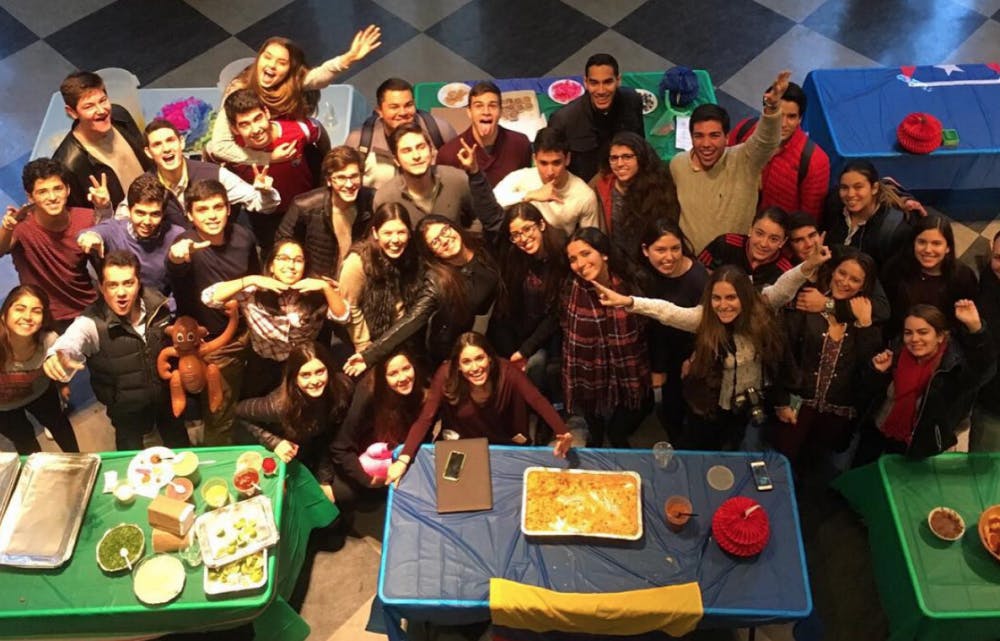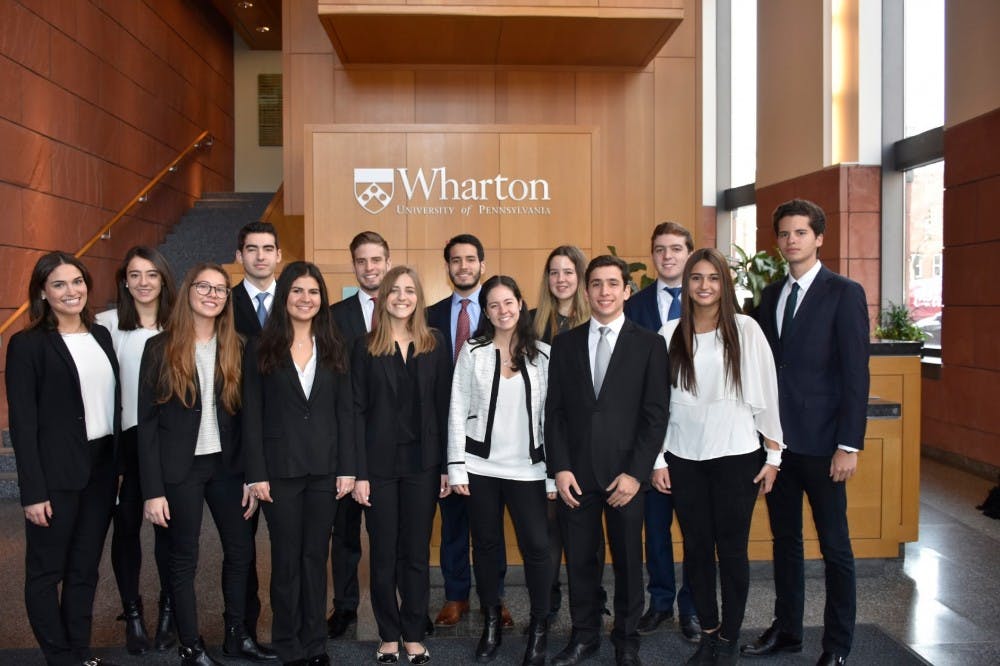Ask a freshman to describe club membership at Penn, and “welcoming” is not a word that initially comes to mind. While many underclassmen are entering the spring semester with some sort of club experience under their belts, it’s hard to forget the initial shock of NSO’s Student Activities Fair and the intense application period that followed, when it became quickly apparent that passionate for a club was not enough to gain entry. It’s a culture that has recently been criticized for heightening mental health issues on campus. It’s also a culture that Wharton Latino rejects entirely.
Wharton Latino, one of Penn’s largest undergraduate organizations, is breaking club norms left and right. Emiliana Santandreu (C ‘19), Wharton Latino’s Social Chair, says that everyone is welcome into the group. “It’s not a club only for Wharton. It’s not a club only for Latinos. My favorite part about it is the people who aren’t Latino who come, but just want to know more about the culture and enjoy participating. There’s a lot of Europeans who come and a lot of Americans, as well, and they just like to hang out with us.”

Courtesy of Wharton Latino
Vice President Marcos Cabarcos (E ‘19), who is originally from Panama, remembers how welcoming the Wharton Latino community was when he was a freshman. “When you walk into the first GBM, they’re playing Latino music, the people there are speaking Spanish to you, so you just feel like you’re a part of it. As soon as you walk into the first GBM, it’s just something you want to keep coming back to.”
Rather than evaluating and cutting newcomers who vie for spots on board, for leadership positions, or simply for a seat in the room, Wharton Latino involves every freshman immediately upon joining the club through its Freshman Project program.
“Freshmen come into other clubs and they have to go through an application process when they don’t even know the other people or what the club does,” club president Antia Vazquez (W ‘19) says. “Instead, what we have is we give the freshmen community an opportunity to plan an event throughout the semester. They’re basically in charge of doing everything. They order the catering, they book the space, they do the marketing, the promotion, they reach out to people, they sell the tickets. And that’s a way for them to understand Wharton Latino, for them to understand what we do.”
Wharton Latino has three distinct branches of focus—corporate, philanthropic, and social—and is specifically aiming to expand career and leadership development opportunities for its members that they might not have otherwise gotten.

Courtesy of Wharton Latino
“Whether you’re in Wharton or not, you get to Penn and are like, ‘Oh my god, everyone’s recruiting. I’ve never done a resumé in my life. I’ve never done an interview. What do I do?’” Antia says. “In the professional industry, you need to know how to do an interview, you need to know how to write a resumé, and Wharton Latino tries to help members have a solid base and have upperclassmen who can guide you.”
Wharton Latino’s mentorship program, La Taquería, fosters tight relationships between classes. However, while the sense of community is strong, Marcos emphasizes the club’s primary focuses.
“One of the stigmas that Wharton Latino has is that it’s a social club, because ‘Latinos like to party’ or whatever,” he says. “Honestly, I think people should be aware that, of course, it’s a very social club, but it’s also very focused on the corporate side. It’s a club that is going to try and help you find what you want to do in the future in terms of careers.”
On the philanthropic side, Wharton Latino’s biggest event of the year is less than a month away: the Valentine’s Day rose sale. Marcos notes that there are as many as 1,000 roses on order from Colombia for the event and that all of the proceeds will be donated to a charity of the club’s choice.
“Most of us come from countries in Latin America that have inequality,” Antia points out. “Being here [at Penn] is a privilege, so we like to give back.”

